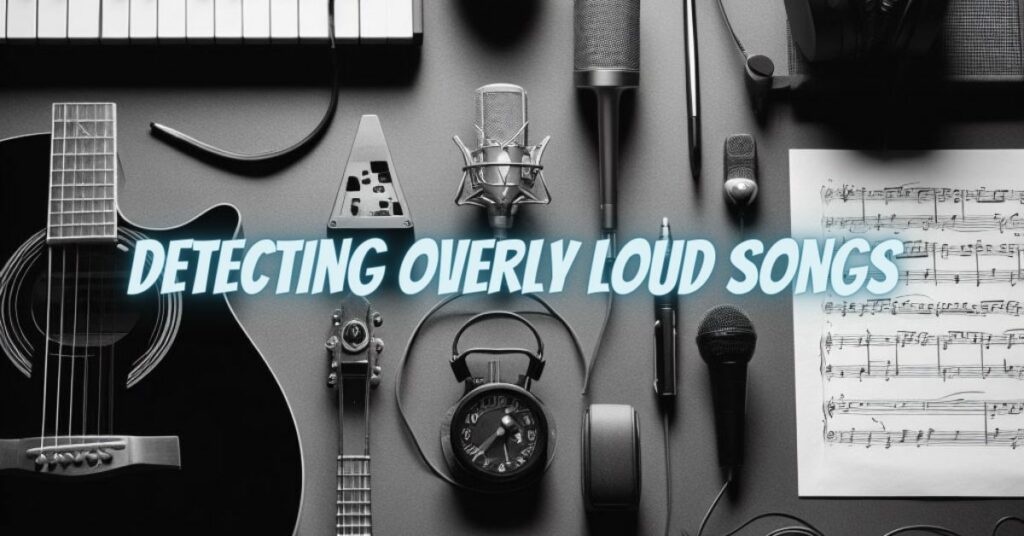Music has the incredible power to move us emotionally and physically. Whether you’re at a live concert, in your car, or enjoying a quiet evening at home, the volume at which you play your music can significantly impact your experience. However, it’s essential to strike a balance between enjoying your favorite tunes and protecting your hearing. In this article, we’ll explore how to know if a song is too loud and offer tips on maintaining a safe listening environment.
The Importance of Safe Listening
Hearing loss is a widespread and growing concern, affecting people of all ages. One of the primary causes of hearing damage is exposure to loud sounds, including music played at excessive volumes. In a world where personal audio devices and powerful sound systems are readily available, it’s crucial to be aware of the risks associated with loud music.
How Do You Know if a Song Is Too Loud?
- The 60/60 Rule
A simple rule of thumb to follow is the 60/60 rule. This guideline recommends keeping your music’s volume at or below 60% of the maximum volume for no more than 60 minutes at a time. Afterward, take a break from listening or lower the volume to prevent hearing fatigue and potential damage.
- Pay Attention to Your Ears
Your ears are incredible sensors for detecting when music is too loud. If you experience discomfort, pain, or ringing in your ears, it’s a clear sign that the music is too loud and could be causing damage. When this happens, lower the volume immediately.
- Conversational Comfort
If you’re listening to music with others, pay attention to your ability to have a conversation without raising your voice. If you find yourself shouting to be heard or if your friends are doing the same, the music is likely too loud.
- Hearing Impairment
If you have difficulty hearing conversations or other everyday sounds after listening to music, it’s a sign that the volume was too high. This temporary hearing impairment is a warning that you should reduce the volume to protect your hearing.
- Volume Limits on Devices
Many audio devices, such as smartphones and portable speakers, have volume limit settings. Make use of these settings to ensure you don’t exceed safe listening levels.
- Smartphone Apps
Several smartphone apps can measure the decibel level of the music you’re listening to. If the app indicates that the volume exceeds safe levels, it’s time to turn it down.
- Ear Protection
If you’re in an environment with exceptionally loud music, such as a concert or nightclub, consider using earplugs designed for musicians or concertgoers. These earplugs reduce overall volume while maintaining sound clarity.
- Be Mindful of Bass
Heavy bass can add a new dimension to music, but it can also be particularly damaging to your hearing. If you feel a throbbing sensation in your ears or chest, the bass may be too intense. Reduce the bass or overall volume to protect your hearing.
Preventing Hearing Damage
Knowing when a song is too loud is essential, but preventing hearing damage is equally crucial. Here are some tips to protect your ears:
- Invest in High-Quality Headphones: Good quality headphones can provide clear sound at lower volumes, reducing the need to turn up the volume to hear every detail.
- Limit Exposure: Follow the 60/60 rule and give your ears a break regularly when listening to music.
- Use Noise-Canceling Headphones: Noise-canceling headphones block external noise, allowing you to enjoy music at lower volumes.
- Get Regular Hearing Checkups: Periodic hearing tests can help you monitor your hearing health and detect any changes in your ability to hear.
Music is a vital part of our lives, but it’s essential to enjoy it responsibly to prevent hearing damage. Knowing when a song is too loud and taking measures to protect your hearing are key steps in maintaining a healthy auditory system. By following the tips and guidelines outlined in this article, you can continue to savor your favorite songs while safeguarding your precious sense of hearing.


